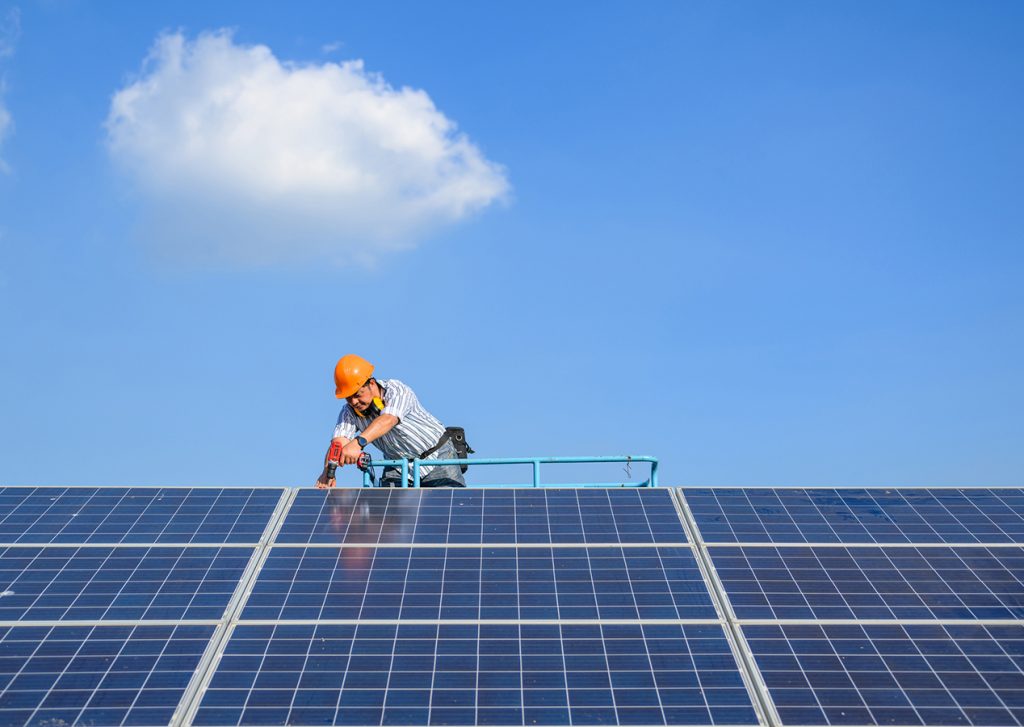How Solar Power Can Assist You Save Cash and Lower Your Carbon Impact
The assimilation of solar power right into your energy portfolio presents an engaging possibility for both monetary savings and environmental stewardship. By utilizing the sunlight's energy, home owners can significantly decrease their regular monthly utility expenditures while likewise safeguarding against the changability of future energy prices. The change to solar adds to a marked reduction in carbon emissions, lining up personal finance with more comprehensive environmental goals. As numerous government rewards end up being available, the concern emerges: exactly how can one properly browse the preliminary investments and continuous benefits of solar innovation to optimize both financial and environmental gains?
Recognizing Solar Power Savings
While the shift to solar energy often entails a preliminary financial investment, comprehending solar power savings is crucial for home owners and organizations alike. Solar power systems can substantially lower power costs by taking advantage of the sunlight's energy, equating right into significant long-lasting monetary advantages. By creating their own electricity, individuals decrease dependence on grid power, which is subject to rising and fall costs. These financial savings can build up gradually, frequently bring about a quick return on financial investment.
Furthermore, solar power systems may get approved for numerous monetary motivations, consisting of tax obligation credit scores and rebates, further boosting their cost-effectiveness. The schedule of internet metering permits individuals to sell excess power back to the grid, creating an added income stream. These variables add to the total financial savings connected with solar power.

Along with route financial financial savings, solar power supplies the included advantage of increasing home value. Houses geared up with solar panels are usually extra eye-catching to buyers, as they guarantee lower energy costs - Simply Solar Illinois. Understanding these components is essential for any individual considering solar power, as it highlights not just the possible economic gains, but also the wider environmental and financial benefits of embracing sustainable energy solutions
Initial Prices vs. Long-Term Conveniences
When examining solar power, it is very important to evaluate the initial prices versus the long-term advantages. The in advance investment for solar panels, installment, and associated equipment can be significant, frequently varying from $15,000 to $30,000, relying on the system size and home power requirements. This initial expense might discourage some homeowners; however, it is vital to think about the possible cost savings in time.
As soon as set up, solar power systems can dramatically decrease and even remove monthly power expenses, bring about considerable long-term economic benefits. Research studies show that property owners can conserve anywhere from $10,000 to $30,000 over the lifespan of their planetary system, usually 25 years. Additionally, many states use incentives, tax credit reports, and rebates that can balance out initial costs, making solar a lot more obtainable.

Minimizing Your Carbon Impact
Lowering your carbon footprint is an essential consideration in today's ecologically conscious society, and taking on solar energy is among the most efficient techniques to achieve this goal. Solar power is a clean, sustainable source that dramatically lessens reliance on nonrenewable fuel sources, which are major factors to greenhouse gas discharges.

Moreover, the prevalent fostering of solar innovation urges the development of environment-friendly tasks and sustains advancements in power storage and efficiency. The even more individuals and organizations purchase solar power, the higher the cumulative reduction in carbon discharges, cultivating a cleaner environment for future generations.
Federal Government Incentives and Discounts
Embracing solar power not only benefits the environment yet can also lead to substantial financial cost savings, particularly with the availability of federal government motivations and rebates. Numerous federal, state, and neighborhood programs are made to encourage home owners and companies to buy solar power systems, making the transition much more budget-friendly.
Among one of the most prominent incentives is the Federal Investment Tax Obligation Credit (ITC), which permits planetary system proprietors to subtract a significant portion of the setup prices from their government taxes. This incentive has been crucial in decreasing the in advance costs linked with solar power systems. Additionally, lots of states provide their very own tax debts, grants, and rebates that can even more boost cost savings.
Additionally, some city governments provide real estate tax exceptions for solar installments, ensuring that homeowners do not encounter boosted real estate tax as an outcome of their renewable resource investments. Energy firms may also supply incentives, consisting of net metering and feed-in tariffs, which allow solar energy customers to market excess power back to the grid.
Picking the Right Solar System
Picking the appropriate planetary system is important for optimizing power performance and monetary advantages. The choice hinges on several aspects, consisting of power requirements, spending plan, and offered space. House owners need to start by analyzing their electricity consumption to figure out the system size needed for optimum performance.
Following, take into consideration the different sorts of solar modern technologies available. Simply Solar Illinois. Solar (PV) panels are one of the most common, transforming sunshine continue reading this straight right into power, while solar thermal systems concentrate on home heating water. Each kind has look at here now distinctive benefits depending on specific needs
Budget factors to consider are additionally paramount. First installation expenses can vary significantly, so it's crucial to compare quotes from several service providers and explore funding options. Government rewards and discounts can further minimize the financial burden, making planetary systems much more available.
Conclusion
The ecological advantages of solar energy add to lasting methods important for combating environment change. Government motivations improve the expediency of solar modern technology fostering, motivating a shift in the direction of a cleaner, much more economically reliable energy source.